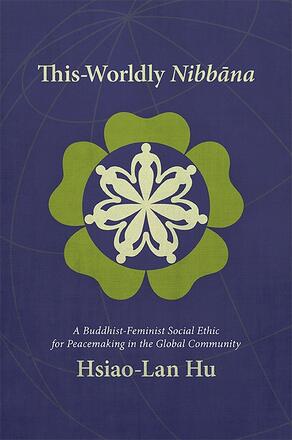
This-Worldly Nibbāna
A Buddhist-Feminist Social Ethic for Peacemaking in the Global Community
Alternative formats available from:
A Buddhist feminist social ethics for contemporary times.
Description
Offering a feminist analysis of foundational Buddhist texts, along with a Buddhist approach to social issues in a globalized world, Hsiao-Lan Hu revitalizes Buddhist social ethics for contemporary times. Hu's feminist exegesis references the Nikāya-s from the "Discourse Basket" of the Pāli Canon. These texts, among the earliest in the Buddhist canon, are considered to contain the sayings of the Buddha and his disciples and are recognized by all Buddhist schools. At the heart of the ethics that emerges is the Buddhist notion of interdependent co-arising, which addresses the sexism, classism, and frequent overemphasis on individual liberation, as opposed to communal well-being, for which Buddhism has been criticized. Hu notes the Buddha's challenge to social hierarchies during his life and compares the notion of "non-Self" to the poststructuralist feminist rejection of the autonomous subject, maintaining that neither dissolves moral responsibility or agency. Notions of kamma, nibbāna, and dukkha (suffering) are discussed within the communal context offered by insights from interdependent co-arising and the Noble Eightfold Path. This work uniquely bridges the worlds of Buddhism, feminism, social ethics, and activism and will be of interest to scholars, students, and readers in all of these areas.
Hsiao-Lan Hu is Assistant Professor of Religious Studies and of Women's and Gender Studies at the University of Detroit Mercy.
Reviews
"Because of the wide range of sources consulted and the interdisciplinary approach to the subject, this monograph is unique in its kind and a solid contribution to the field of Buddhist studies … an excellent book, which is based on a critical reading of classical and more recent literature in the field of Buddhist doctrine, to tackle the highly relevant issue of Buddhist intervention in society. " — Sophia
"Hsiao-Lan Hu's work is an elegant contribution to Buddhist theology, as well as to feminist and peace studies, social ethics, and engaged Buddhism. Few have done the level of analysis she's done, bringing both Buddhist and feminist thought together to create something new. Even fewer have done it so well. This is a great book. " — Sid Brown, author of The Journey of One Buddhist Nun: Even Against the Wind